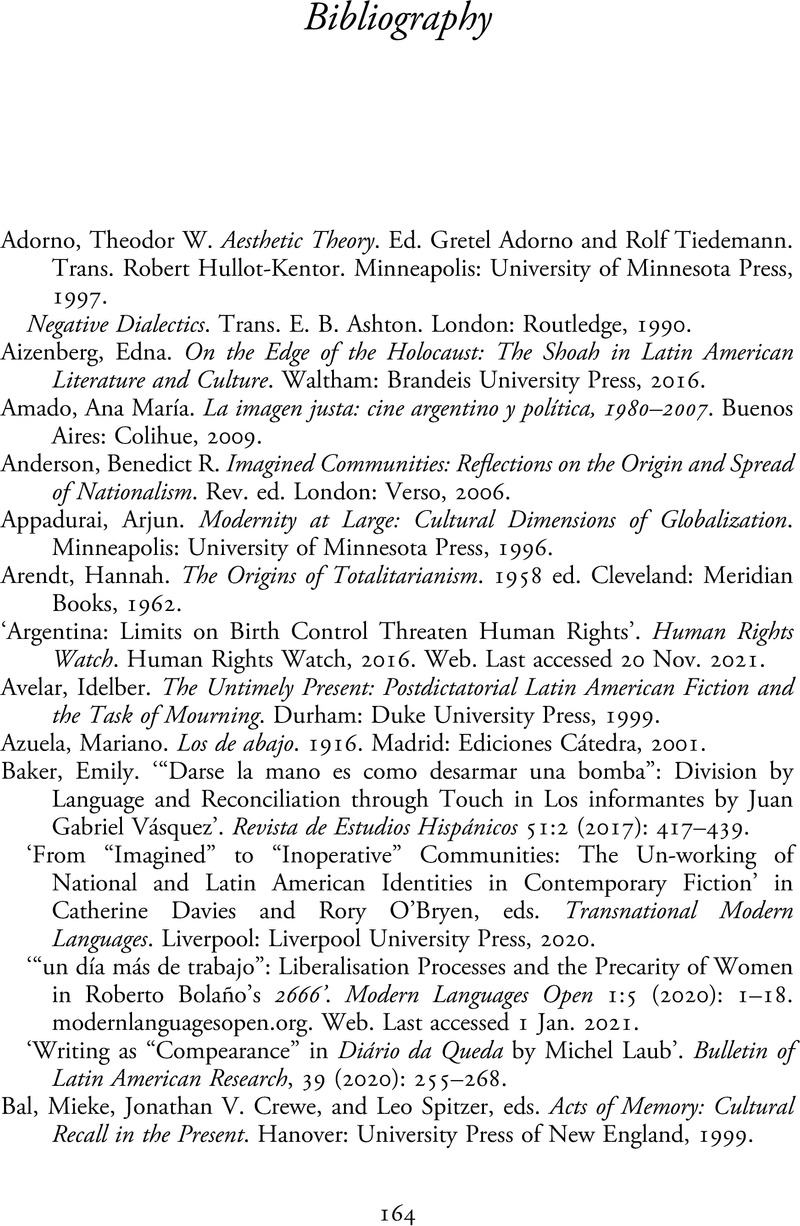Book contents
- Nazism, the Second World War and the Holocaust in Contemporary Latin American Fiction
- Nazism, the Second World War and the Holocaust in Contemporary Latin American Fiction
- Copyright page
- Dedication
- Epigraph
- Contents
- Acknowledgements
- Introduction
- Chapter 1 Nazism as Allegory in Argentine Fiction: From Dictatorship to Neoliberalism in El comienzo de la primavera by Patricio Pron and Wakolda by Lucía Puenzo
- Chapter 2 Nazism and Borges: Contemporary Re-readings by Roberto Bolaño and Marcos Peres
- Chapter 3 Myth Interrupted: Identity and the Absence of Nation in En busca de Klingsor by Jorge Volpi and Amphitryon by Ignacio Padilla
- Chapter 4 Sovereignty, Democracy and ‘Nonselfsufficiency’ through Touch in Los informantes by Juan Gabriel Vásquez and Diário da Queda by Michel Laub
- Epilogue
- Bibliography
- Index
- References
Bibliography
Published online by Cambridge University Press: 09 June 2022
- Nazism, the Second World War and the Holocaust in Contemporary Latin American Fiction
- Nazism, the Second World War and the Holocaust in Contemporary Latin American Fiction
- Copyright page
- Dedication
- Epigraph
- Contents
- Acknowledgements
- Introduction
- Chapter 1 Nazism as Allegory in Argentine Fiction: From Dictatorship to Neoliberalism in El comienzo de la primavera by Patricio Pron and Wakolda by Lucía Puenzo
- Chapter 2 Nazism and Borges: Contemporary Re-readings by Roberto Bolaño and Marcos Peres
- Chapter 3 Myth Interrupted: Identity and the Absence of Nation in En busca de Klingsor by Jorge Volpi and Amphitryon by Ignacio Padilla
- Chapter 4 Sovereignty, Democracy and ‘Nonselfsufficiency’ through Touch in Los informantes by Juan Gabriel Vásquez and Diário da Queda by Michel Laub
- Epilogue
- Bibliography
- Index
- References
Summary

- Type
- Chapter
- Information
- Nazism, the Second World War and the Holocaust in Contemporary Latin American Fiction , pp. 164 - 177Publisher: Cambridge University PressPrint publication year: 2022



